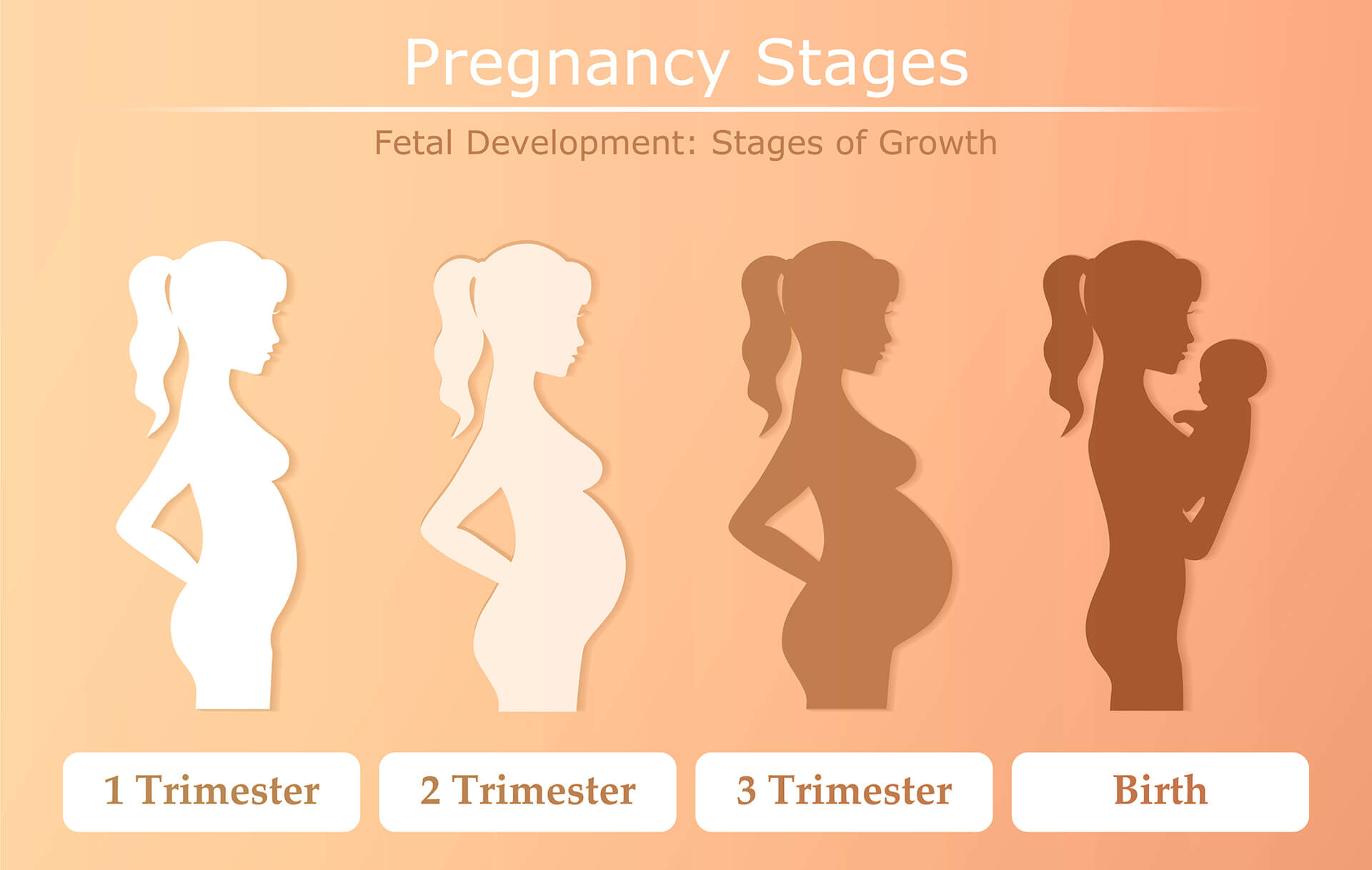
The Stages of Pregnancy: A Comprehensive Guide
Pregnancy is an extraordinary journey that encompasses a myriad of physical, emotional, and hormonal changes. It is a time of both anticipation and trepidation as the expectant mother prepares to welcome a new life into the world. To fully appreciate the transformative nature of this period, it is essential to understand the different stages of pregnancy and the remarkable developments that occur within the mother and her unborn child.
First Trimester (Weeks 1-12)
- Week 1-4: Conception occurs when a sperm fertilizes an egg, forming a zygote. The zygote travels through the fallopian tube and implants in the lining of the uterus, marking the beginning of pregnancy.
- Week 5-8: The embryo develops rapidly, forming the major organs and body systems. The heart begins to beat, and the limbs and facial features start to take shape.
- Week 9-12: The embryo is now referred to as a fetus. It continues to grow and develop, and the mother may experience symptoms such as morning sickness, breast tenderness, and fatigue.
Second Trimester (Weeks 13-28)
- Week 13-16: The fetus grows significantly, and its movements become more pronounced. The mother’s uterus begins to expand, and her belly becomes visible.
- Week 17-20: The fetus’s sex can be determined through an ultrasound. It begins to produce its own urine and feces, and its lungs start to develop.
- Week 21-24: The fetus grows rapidly and gains weight. It can open its eyes and respond to sound. The mother may experience increased fetal movement and Braxton Hicks contractions.
- Week 25-28: The fetus continues to mature, and its organs become more fully developed. It begins to practice breathing and can suck its thumb. The mother’s body prepares for labor by producing relaxin, a hormone that loosens the ligaments in the pelvis.
Third Trimester (Weeks 29-40)
- Week 29-32: The fetus grows rapidly and gains significant weight. It begins to store fat and develop its immune system. The mother’s uterus continues to expand, and she may experience shortness of breath and back pain.
- Week 33-36: The fetus’s lungs are fully developed, and it can survive outside the womb if necessary. It begins to turn head down in preparation for birth.
- Week 37-40: The fetus continues to mature and gain weight. The mother’s body prepares for labor by producing prostaglandins, hormones that soften the cervix and stimulate contractions.
Stages of Labor
- First Stage: Labor begins with the onset of regular contractions. The cervix dilates to allow the baby to pass through.
- Second Stage: The baby is born as the mother pushes with each contraction.
- Third Stage: The placenta is delivered after the baby is born.
- Fourth Stage: The uterus contracts to stop bleeding and return to its pre-pregnancy size.
Postpartum Period
- First 6 Weeks: The postpartum period is a time of recovery and adjustment for both the mother and baby. The mother’s body undergoes significant hormonal changes, and she may experience fatigue, mood swings, and vaginal bleeding.
- 6 Weeks to 6 Months: The mother’s body continues to heal and recover. She may gradually return to her pre-pregnancy weight and activity level.
- 6 Months to 1 Year: The postpartum period ends as the mother’s body fully recovers and she adjusts to her new role as a parent.
Physical Changes During Pregnancy
- Increased Blood Volume: Pregnancy causes a significant increase in blood volume to support the growing fetus and placenta.
- Uterus Expansion: The uterus expands to accommodate the growing fetus, causing the abdomen to protrude.
- Breast Enlargement: The breasts begin to produce milk in preparation for breastfeeding.
- Weight Gain: The mother gains weight to support the growing fetus, placenta, and amniotic fluid.
- Skin Changes: The skin may become darker and develop stretch marks due to hormonal changes.
Emotional Changes During Pregnancy
- Mood Swings: Pregnancy hormones can cause mood swings, ranging from euphoria to irritability.
- Anxiety: Concerns about the baby’s health and the upcoming birth can lead to anxiety.
- Excitement: The anticipation of welcoming a new life into the world can bring immense joy and excitement.
- Nesting: The mother may experience a strong urge to prepare for the baby’s arrival by cleaning, organizing, and decorating.
Prenatal Care
Regular prenatal care is essential for ensuring the health and well-being of both the mother and baby. Prenatal visits typically include:
- Physical Exam: The doctor checks the mother’s blood pressure, weight, and overall health.
- Ultrasound: An ultrasound is used to monitor the baby’s growth and development.
- Blood Tests: Blood tests are performed to check for anemia, infections, and other health conditions.
- Urine Tests: Urine tests are used to check for protein and sugar levels.
- Education: The doctor provides information on nutrition, exercise, and other aspects of pregnancy.
Conclusion
Pregnancy is a remarkable and transformative journey that involves a myriad of physical, emotional, and hormonal changes. By understanding the different stages of pregnancy, expectant mothers can navigate this period with confidence and prepare for the arrival of their precious child. Regular prenatal care is crucial for ensuring the health and well-being of both the mother and baby throughout this extraordinary experience.